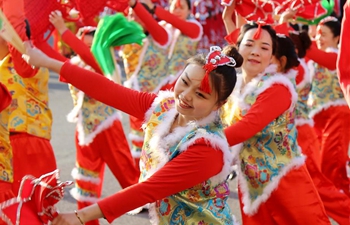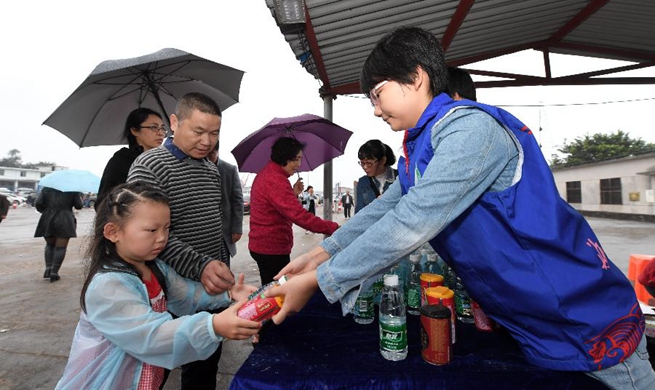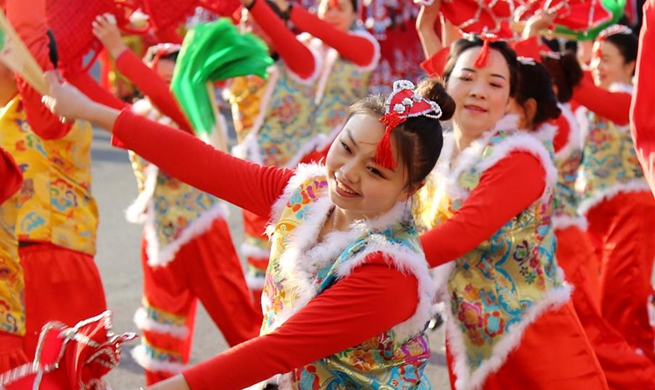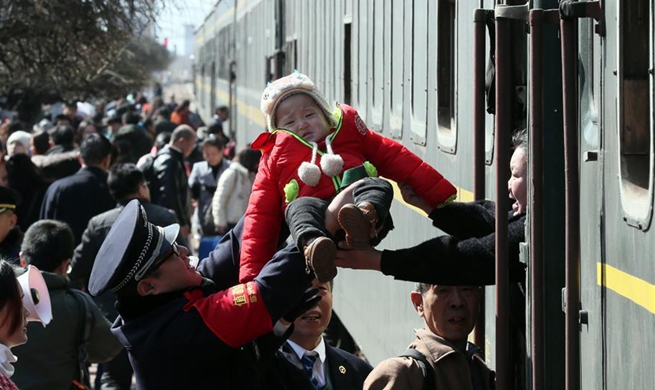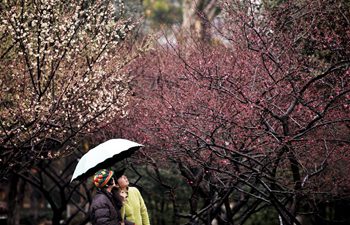LHASA, Feb. 22 (Xinhua) -- Losang Nyandrak, 45, in southwest China's Tibet Autonomous Region, was proud that his household was no longer registered as a low-income family in the new year.
The farmer-turned-contractor is a resident of Sijijixiang New Village near Lhasa, the regional capital.
In December 2016, a total of 1,310 residents from 285 households, including Losang Nyandrak, were relocated to the new village.
With a total investment of 143 million yuan (22.6 million U.S. dollars), construction on the new village began in August and was completed in December two years ago. In addition to homes, there are also electric power facilities, supermarkets and clinics.
Villagers can choose to work their original land or lease the land to agricultural companies. Nearly 500 villagers have so far attended skill training courses on everything from driving a car or excavator to weaving carpets.
The village is near the airport expressway, the railway and a national highway. Children can attend school in nearby towns and counties.
Before the relocation, Losang Nyandrak tried to seek employment in factories and on construction sites during slack seasons. But job opportunities were rare.
He had two daughters who were at school ages. His wife was in poor health and needed money for medical treatment. To make things worse, he had a car accident a few years ago and went into debt as a result in order to compensate for injuries.
The annual income for his family of four was only 8,000 yuan in 2015, far below the national poverty threshold.
Thanks to improved traffic and more demand in construction near the new village, Losang Nyandrak became a contractor for projects outside the village and recruited more than 80 fellow villagers.
Last year, his family's income surged to nearly 57,000 yuan. With more money, the family had more reasons to enjoy Losar, or Tibetan New year, which coincided with Spring Festival this year.
As one of the traditions to welcome Losar, "Gutu," or doughy meat porridge, was served at the family dinner table on the eve of the new year. The next day, the family made an offering of the "Qiema," a rectangular wooden box containing roasted barley and fried wheat grain, symbolizing harvest in the next year.
"We enjoyed the holiday very much, especially after such a good year," said Losang Nyandrak, who was busy entertaining his former neighbors at his new home.
Inside the two-story building, Tibetan carpets were laid out on almost every inch of the floor and stairs. His wife Drasang, now in better health, went all out for the new year shopping, with all kinds of snacks, beverages, fruit and clothes.
According to the regional government, about 263,000 impoverished villagers are expected to be relocated to new areas with convenient traffic, better environment and modern facilities from 2016 to 2020.
So far over 100,000 people have been relocated to 714 sites.
Losang Nyandrak has plans to launch a farmer cooperative in the village, which requires an investment of up to 500,000 yuan.
"A cooperative of our own will offer steady employment for more villagers," he said.







